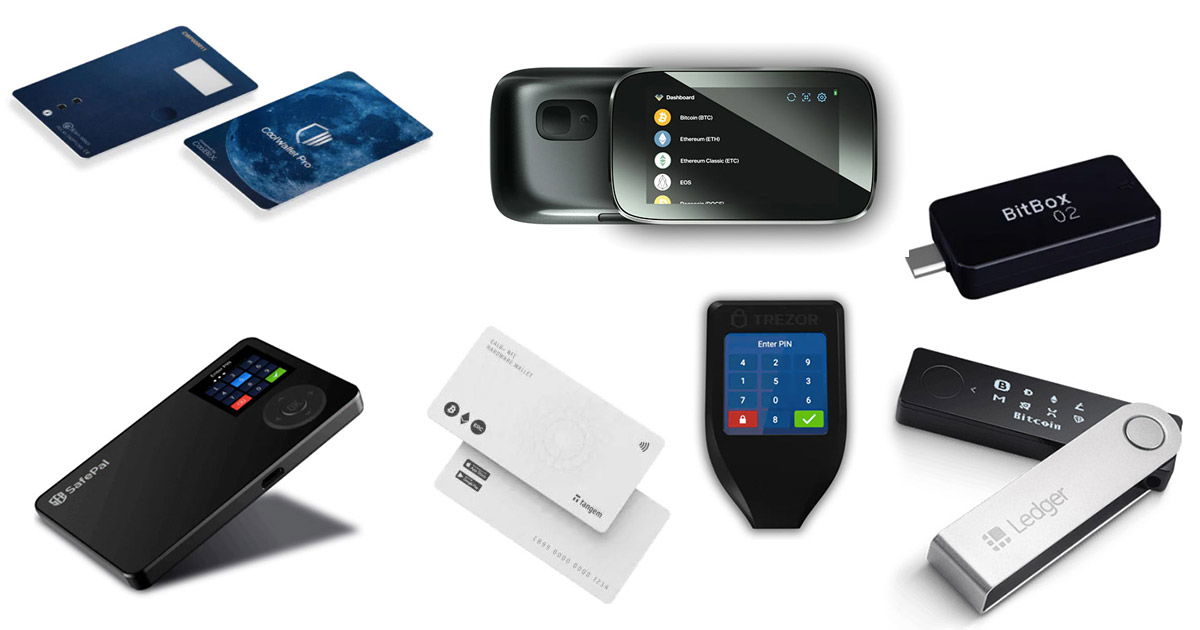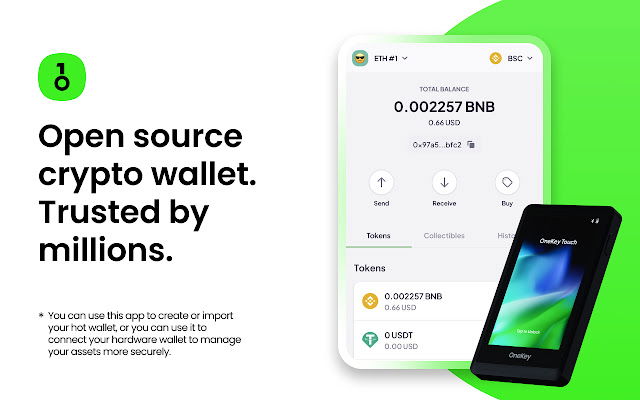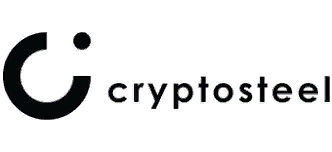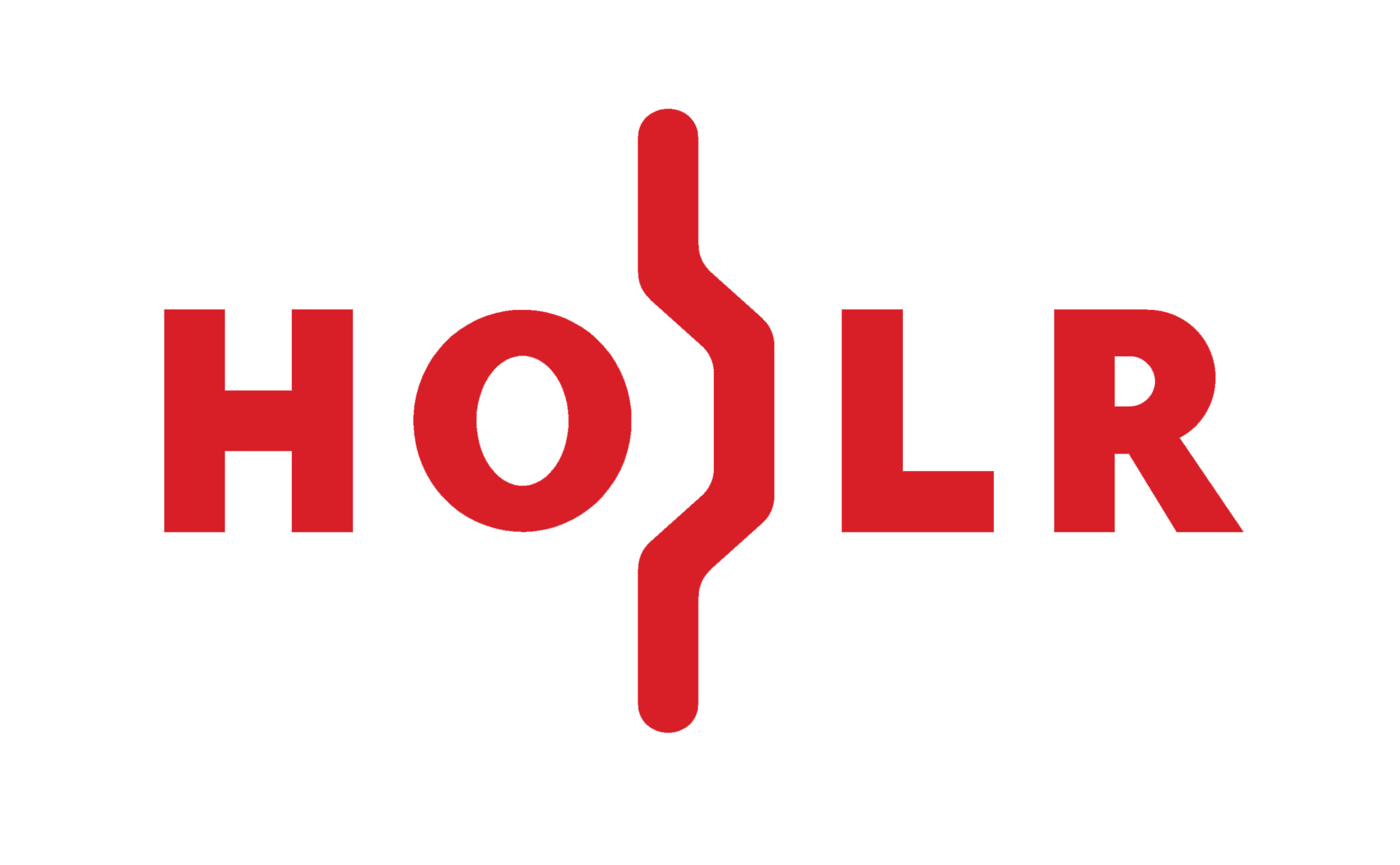The Crypto Hardware Wallet A-Z: What Does That Mean?

Everything you always wanted to know but never knew how to ask!
Welcome to our crypto hardware wallet glossary!
This is where you'll find all the technical words and phrases related to these devices. But don't worry, it's written in plain English, so even if you're new to the world of crypto, you'll be able to understand.
Air-gapped:
This term refers to a hardware wallet that is not connected to the internet, making it very hard for hackers to access it.
A hardware wallet that is air-gapped is physically isolated from any network connection, this means it is not connect to any network and can't be hacked remotely. This added security feature makes it highly resistant to hacking attempts and physical tampering.
The term "air-gapped" comes from the idea of the device being "air-gapped" from the internet, similar to the way a computer that is not connected to the internet is said to be "air-gapped" from the network.
Hardware wallets that are air-gapped are typically considered to be the most secure form of cold storage for digital assets, as they are protected from both remote and local attacks. Since all the sensitive operations such as signing a transaction take place on the device, and the device is completely isolated from the network, there's no way for hackers to access the private keys.
Check out the products below that come with this handy feature. 👇
- ELLIPAL Titan Cold Wallet
- ELLIPAL Titan Mini
- SafePal S1
- SafePal X1
- BALLET Real
- Keystone
- Blockstream Jade
- NGRAVE Zero
BIP32, BIP39 and BIP44:
These are “Bitcoin Improvement Proposals” which provide a more secure and user-friendly way to manage private keys and seed phrases.
BIP32, BIP39, and BIP44 are “Bitcoin Improvement Proposals” which have been incredibly important for the development of crypto hardware wallets because they provide a more secure and user-friendly way to manage private keys and seed phrases, which are the keys to accessing and managing the digital assets stored on the wallet.
BIP32 allows for a hierarchical tree of private and public keys to be generated from a single seed. This means that a single master key can be used to manage multiple private keys, which makes it more convenient for users to manage and organise their digital assets. Additionally, BIP32 also provides a more secure way to manage private keys as it allows for additional layers of security such as multi-sig or multi-factor authentication.
BIP39 provides an easy-to-remember seed phrase, which can be used to represent the private key. This makes it much easier for users to back up and restore their wallets, as they can simply write down the phrase and store it in a safe place. It also reduces the chances of users losing access to their assets due to loss or forgotten private keys.
Lastly, BIP44 provides a way to organise the hierarchy of addresses generated by BIP32 and BIP39. It allows for different compartments in the wallet, each one can be opened by different private keys, and each compartment can be used to store different types of digital assets. This improves the security of the wallet by keeping different assets separated, and it also makes it more convenient for users to manage their assets.
Cold storage:
This is when you store digital assets on a cold storage wallet or other means, which is not connected to the internet and is used for added protection. Also known as “offline storage”; “self custody”; “paper wallet”.
Cold storage refers to the practice of keeping crypto offline, away from the internet, to protect it from hacking or theft. While a crypto hardware wallet is one way to do this, there are also other ways to "cold store" your crypto.
One way is to use a paper wallet. This is a physical document that has a QR code of the private key printed on it. You can generate a paper wallet using a website that creates a new private key and public address for you, then prints out the private key on a piece of paper. You can then store this piece of paper in a safe or safety deposit box, and use it to access your digital assets when needed.
Another way is to use a USB drive or other external storage device to store your private key. This method is similar to a paper wallet, but instead of a physical document, the private key is stored on a USB drive or other external storage device. It's important to keep the device safe and offline, and you can use the device to access your digital assets when needed.
A third way is to use a brain wallet, which is a way to store the private key by memorising a specific phrase, password or a set of words. This method is not the most secure way to store your assets, because if someone knows the phrase, password or set of words, they can access your assets. Also, it's important to remember the phrase, password or set of words, as you won't be able to access your assets without it.
Finally, you can also store your crypto on a hard drive and keep it in a safe or safety deposit box. This is a similar method to storing your crypto on a USB drive. It is important to encrypt the hard drive and keep it offline to protect your assets.
Dual-chip:
This refers to a hardware wallet that uses two different chips, one for keeping the private key and the other for the public key.
A dual-chip feature on a crypto hardware wallet is a security feature that involves the use of two separate chips. One chip is used to handle the private key, while the other chip is used to handle the public key.
The private key is the secret code that gives you access to the digital assets stored on the hardware wallet. It is a long string of numbers and letters, usually in the format of a hexadecimal string. It must be kept secret and secure, as it gives the holder the ability to access and move the assets associated with the corresponding public key.
The public key, on the other hand, is the code that is used to receive digital assets on the wallet. It is also a long string of numbers and letters, again usually in the format of a hexadecimal string. It can be shared publicly, for instance, it is used to receive funds and check the balance of the address associated with it. Unlike the private key, it does not give the holder the ability to move or access the assets, but it is still important to keep it safe as it can be used in combination with the private key to access the assets.
By separating the functions of the private and public key onto two different chips, the cold wallet provides an added layer of security. This way, even if one of the chips is compromised, it doesn't mean the hacker automatically gains access to the private key as well. This makes it harder for a hacker to access the private key and steal assets.
Check out the products below that come with this handy feature. 👇
EAL5 (Evaluation Assurance Level 5):
An assurance level for IT products as defined by international standard, ensuring a high level of security after a thorough security analysis.
EAL certification, which stands for Evaluation Assurance Level, is a rating system that is used to evaluate the security of a crypto hardware wallet. The certification is given by an independent, international, third-party organisation, and it verifies that the wallet has been tested and meets certain security standards.
The EAL levels range from EAL1 to EAL7, with EAL7 being the highest level of security. Each level represents a different level of security assurance, and the higher the level, the more secure the wallet is considered to be. EAL6+ is the highest level of security that is currently available for crypto cold storage wallets. Most hardware wallets range from EAL5+ to EAL6+, this range of qualification is typically reserved for military and government grade security devices.
EAL certification is a useful feature because it provides an independent, objective assessment of the security of a wallet. It allows crypto holders to make more informed decisions about which wallet to use by comparing the different levels of security that are offered by different cold wallets. Additionally, it gives us peace of mind knowing that our crypto is being stored in a cold storage wallet that has been independently verified to meet high security standards. Overall, EAL certification helps to ensure that the wallet is secure and the digital assets are protected from potential threats.
EAL5+ (Evaluation Assurance Level 5+):
An assurance level that refers to a product that has undergone additional security testing and evaluation beyond the standard EAL5 level. It is not an official standard but some manufacturers and certifying bodies use this term to indicate an additional level of security over EAL5.
EAL6 (Evaluation Assurance Level 6):
Higher level of security than EAL5, often used for products in high-security environments like government and military, considered to have a very high level of security as per international standard.
EAL6+ (Evaluation Assurance Level 6+):
Although not defined by the international standard, it is considered an additional level of security over EAL6 and implies the product has been put through rigorous security testing, to provide the highest level of security available.
Firmware:
The software that runs on a hardware wallet, It controls the basic functions of the device and enables additional features such as seedless setup, HD, and multi-sig.
Fingerprint:
A unique identifier that is used to add an extra layer of security to a hardware wallet.
Microcontroller:
A small computer on a single chip that includes a brain for the device, memory, and programmable input/output parts.
Multisignature (multi-sig):
A feature that allows multiple users to sign a transaction using different private keys.
OLED display:
A special kind of screen that is used in some hardware wallets to show information like the balance and transaction history.
Open source:
A type of software that can be used, modified and shared by anyone.
Open source refers to a type of software that is freely available for anyone to use, modify, and distribute. In the context of a crypto hardware wallet, open source means that the source code of the cold wallet software is publicly available and can be reviewed, modified and distributed by anyone. This makes the wallet more transparent and allows anyone to understand how it works, and how secure it is.
One of the biggest advantages of an open-source hardware wallet is that it allows for community-driven development. Anyone with the necessary skills can contribute to the development of the wallet by identifying bugs, suggesting new features, and even making their own modifications to the code. This means that the cold wallet is continually being improved and updated, and any issues are quickly identified and addressed.
Another important advantage is that it allows for independent audits and reviews of the code. This is especially important for security-sensitive products like hardware wallets. When the source code is publicly available, it can be independently reviewed and audited for vulnerabilities and potential exploits. This helps to ensure that the cold wallet is as secure as possible, and that any issues are identified and addressed before they can be exploited.
Furthermore, using open-source software may also help to build trust among users. They can see the code and how it operates, which can give them more confidence that their assets are secure on the wallet. It also means that the users can trust that there is no hidden code running that could compromise their assets or data.
Check out the products below that have this handy feature. 👇
Passphrase:
An extra layer of security, in the form of a word or phrase, that is needed to access the seed phrase and the cold wallet.
PIN Code:
A personal number that is needed to access the wallet after plugging it into a computer.
Private key:
A secret code that gives you access to the digital assets stored on a hardware wallet.
A private key is a secret code that gives you access to the digital assets stored on a crypto hardware wallet. It is a long string of numbers and letters, usually in the format of a hexadecimal string. It is unique to each wallet and must be kept secret and secure, as it is the only way to access and move the assets associated with the corresponding public key.
The private key is the most important part of a crypto hardware wallet, as it is the only way to access the digital assets stored on it. Without the private key, you will not be able to access or move your assets, making it very important to keep it secure and protected from potential threats such as hacking or theft.
There are a few different ways that private keys can be stored on a cold wallet. Some wallets have the private key stored on a chip on the device itself, which is protected by multiple layers of security. Other wallets use an additional device, such as a USB drive, that is used to store the private key offline.
Another way that private keys can be stored is by using a recovery phrase or seed phrase, which is a set of words that can be used to restore access to the wallet if the device is lost or stolen. This recovery phrase is generated when the wallet is first set up and must be written down and stored in a secure location, or on a seed phrase storage device.
Regardless of the storage method, private keys are an essential feature of a crypto cold wallet and they ensure that only the owner of the wallet can access and move the digital assets stored on it. This feature is what makes hardware wallets different from software wallets which are prone to hacking and theft.
Public key:
A code that is used to receive digital assets on a hardware wallet.
A public key is a code that is used to receive digital assets on a crypto hardware wallet. It is a long string of numbers and letters, usually in the format of a hexadecimal string. It is unique to each wallet and can be shared publicly, as it does not grant access to the assets associated with the corresponding private key.
The public key is a vital component of a crypto cold wallet as it is used to receive digital assets such as Bitcoin, Ethereum or other cryptocurrencies. It acts as an address for transactions, much like a bank account number and sort code. A sender will use the recipient's public key to send assets to their wallet. Unlike a private key, a public key can be shared with anyone, allowing others to send assets to your wallet. It's important to note that a public key alone cannot be used to move or spend the assets associated with it, it needs the private key to complete the transaction.
The public key is also used to validate the authenticity of a transaction by providing a digital signature, it’s generated by applying a mathematical function to the private key. This signature acts as proof that the sender is indeed the owner of the private key and is authorised to spend the funds associated with the public key.
Random Number Generator (RNG):
A device or software that generates random numbers. It's used to create a truly random private key in hardware wallets.
Seed phrase:
A set of words that can be used to restore access to a cold wallet if the device is lost or stolen (also known as a mnemonic phrase or a recovery phase).
A seed phrase, also known as a mnemonic phrase or a recovery phrase, is a set of words that can be used to restore access to a hardware wallet if the device is lost or stolen. It is a backup mechanism and the only way to recover the funds in the cold wallet in case of loss or theft of the device.
When you first set up your hardware wallet, you will be prompted to write down a seed phrase, which is a list of 12 or 24 words. These words are randomly generated and are unique to your wallet. It is important to keep this seed phrase in a safe place, such as a fireproof safe or a bank deposit box, as it is the only way to recover your funds if your hardware wallet is lost or stolen.
The mnemonic phrase is used to regenerate the private key, which is the secret code that gives you access to the digital assets stored on the hardware wallet. The private key is an essential part of the wallet and without it, you will not be able to access your assets. By using the recovery phrase, you can recreate the private key and regain access to your assets.
Check out the products below that can protect these vital words against the elements. 👇
Tamper-proof:
A term used to describe a device or mechanism that is designed to detect and prevent unauthorised access or tampering. Also known as “tamper-evident”.
Tamper-proof is a term used to describe a device or mechanism that is designed to detect and prevent unauthorised access or tampering. In the context of a crypto hardware wallet, tamper-proof refers to the measures that are taken to make the device difficult to open or modify without the user's knowledge. This helps to ensure that the private key stored on the device is protected, and that even if someone gains physical access to the hardware wallet, they will not be able to access the assets stored on the device.
One of the most common ways that cold wallets are made tamper-proof is through the use of enclosures that are tough to open. These enclosures are designed to be difficult to break or cut into, making it hard for an attacker to physically access the device. This feature can also include sensors that detect when the device has been opened and will trigger a wipe of the private key making it impossible for an attacker to extract it.
Another way that cold wallets are made tamper-proof is through the use of epoxy or other materials that can be used to seal the device, making it difficult to access the internal components. This makes it tough for an attacker to tamper with the device or add malware to the device.
Tamper-proof feature is a useful feature in hardware wallets as it provides an added layer of security, it helps to ensure that the private key stored on the device is protected, and that even if someone gains physical access to the device, they will not be able to access the assets stored on the wallet. This feature is essential for cryptocurrency wallets as the private key is the only way to access the assets, and if it's compromised, the assets will be lost.
Check out the products below that have this handy feature. 👇
Two-factor Authentication (2FA):
A security feature that requires a second form of identification, such as a fingerprint or a code sent to your phone, in addition to a password to access the wallet.
Learn more about the best TOP 30 hardware cryptocurrency wallets
You can see this list here.
TOP 29 Hardware Wallets, the Official Online Stores
| 1 |  | Trezor hardware wallet, the official online store |  |
| 2 |  | Ledger hardware wallet, the official online store |  |
| 3 |  | KeepKey hardware wallet, the official online store |  |
| 4 |  | BitBox02 hardware wallet, the official online store |  |
| 5 |  | CoolWallet hardware wallet, the official online store |  |
| 6 |  | ELLIPAL hardware wallet, the official online store |  |
| 7 |  | D'CENT hardware wallet, the official online store. |  |
| 8 |  | SafePal hardware wallet, the official online store |  |
| 9 |  | SecuX hardware wallet, the official online store |  |
| 10 |  | BC Vault hardware wallet, the official online store |  |
| 11 |  | BitLox hardware wallet, the official online store |  |
| 12 |  | Keystone hardware wallet, the official online store |  |
| 13 |  | ProKey hardware wallet, the official online store |  |
| 14 |  | NGRAVE hardware wallet, the official online store |  |
| 15 |  | Keevo hardware wallet, the official online store |  |
| 16 |  | GridPlus hardware wallet, the official online store |  |
| 17 |  | Ballet hardware wallet, the official online store |  |
| 18 |  | OPOLO hardware wallet, the official online store |  |
| 19 |  | Foundation (Passport) hardware wallet, the official online store |  |
| 20 |  | ImKey hardware wallet, the official online store |  |
| 21 |  | Tangem hardware wallet, the official online store |  |
| 22 |  | HashWallet hardware wallet, the official online store |  |
| 23 |  | Material Bitcoin hardware wallet, the official online store |  |
| 24 |  | ShieldFolio hardware wallet, the official online store |  |
| 25 |  | OneKey hardware wallet, the official online store |  |
| 26 |  | Blockstream Jade hardware wallet, the official online store |  |
| 27 |  | Cypherock hardware wallet, the official online store |  |
| 28 |  | Keepser hardware wallet, the official online store |  |
| 29 |  | NEXA hardware wallet, the official online store |  |


















































